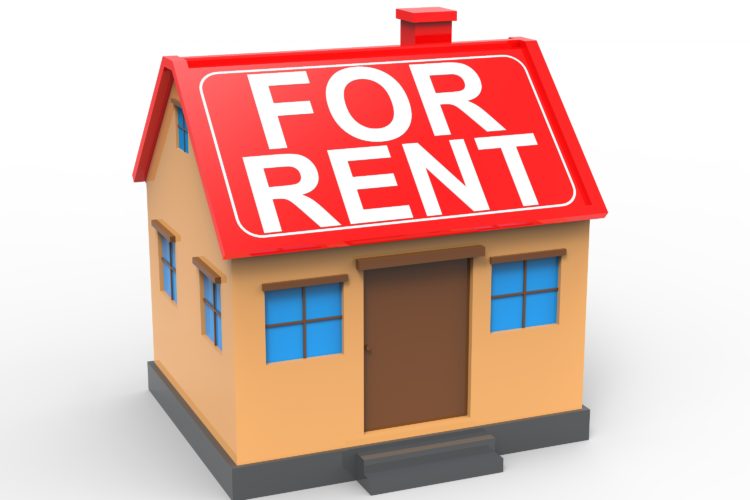When it comes to renting property in Tirana, there is not a whole lot of information out there to help expats, or anyone else looking to rent in and around the capital. Here are some tips from me to you, based on. common sense, experience, and lastly, checked over by an Albanian lawyer and confirmed as correct. Please note,You are welcome!
- The easiest way to find a rental property in Tirana is via an agent but be warned, not all agents are created equally. I had several issues where I would arrange to see one apartment and would be taken to see another or be told that it was no longer available 10 minutes before the meeting. I got the feeling that properties were advertised as ‘bait’ so they could then show you other, lower quality, less suitable properties. I am not saying that all agents are like this but just be firm with them about what your expectations are and that when you specify criteria, it is not merely a suggestion that is open to interpretation. I finally found a superb agent though, so if you are looking for one, send me a message and I will be happy to put you in touch! Alternatively, you can scour online or newspaper resources but if you don’t speak Albanian, you might need a translator.
- It is normal procedure for the agent to take 50% of the first month’s rent as their fee and to be honest, this has been the same in other countries I have been in as well. The difference is, however, that in Albania, like many things, this is open to interpretation. You can negotiate the percentage, but to be honest, if they have done a good job, I am more than happy to pay them their dues.
- Prices vary a lot in Tirana and be warned that there are definitely ‘foreigner rates’ applicable if you are not Albanian. As a rough guide, this is what you should expect to pay in different areas, for a 2+1 apartment approx 100sqm; Blloku EUR 300-EUR 600, Pizari Re EUR 300- EUR 500, Vasil Shanto EUR 200-EUR 450, Kommuna Parasit EUR 180- EUR 400, Myslym Shyri EUR 300- EUR 600, Student Area EUR 150- EUR 350, Artificial Lake EUR 250- EUR 600, Don Bosco EUR 150- EUR 350.. A lot depends on how modern the apartment is, quality of furnishings, whether it has a lift/air con etc. Older blocks tend to be cheaper even if they are modern inside, whilst new builds are at the higher end of the scale.
- The deposit is not governed by the law and it is typically equal to one month’s rent. Some may ask for more, but this is always negotiable.
- ALWAYS GET A RECEIPT for your deposit and never, ever, ever hand over any money without seeing a property and visiting the agents’ premises first.
- ALWAYS GET A CONTRACT and know that you are legally entitled to a copy of it in your native language. Do not sign anything without reading and understanding the contents of it first.
- Contracts rarely last for under six months and most landlords prefer one or two years as an absolute minimum.
- The lease contract is considered as a typical contract and is governed by the Albanian Civil Code, Chapter 6, ARticles 801-825. This means that whilst the parties have some freedom to specify their own rules, ultimately the contract is governed by Albanian law.
- When you move into an apartment, before you unpack your things, it is always wise to take photographs of the interior. Your phone will capture the metadata such as date and time, so when you move out you can refer to it in the case of any disputes. Pay attention to furniture, mattresses, white goods, walls, sofas, as well as anything that has any scratches, breaks, or defects on it- you do not want to have to pay for these when you move out if they were there before.
- Always check the water pressure from the taps and shower. Many of the old buildings have problems with this and if you aren’t careful you can end up with very little water for most of the day, meaning you only have a 1 or two-hour window out of 24 where you can have a decent shower. Also ask if you have a reservoir on the roof, specifically for your apartment.
- It is also wise to take an inventory to ensure that you have a clear record of exactly what items were in the apartment when you moved in, it is preferable to get your landlord to sign this as well Take a photo of it on your mobile so that the metadata is preserved.
- Ensure you know what your rights are when it comes to terminating your contract- some contracts can have clauses written in that allow termination if you have to relocate abroad. Consider this carefully as if you terminate a contract before the end, or without giving due notice (if specified within the contract) you are liable to pay the outstanding balance.
- When a landlord is a person, not a legal entity or business, the tenant is obliged to pay withholding tax that is borne on the lease agreement. Then the landlord is a legal entity or business, the withholding tax is borne by them
- When it comes to electricity and water, always ask to see the bill before you hand over your money. A couple in a 2+1 apartment should expect to pay between EUR 20 and EUR 50 month with minimal-average use of aircon/washing machines/heaters etc Mine has never been more than EUR 20.
- Internet and TV are usually down to the tenant and can be set up with minimal fuss. I recommend Digicom Fibre- you shouldn’t be paying more than EUR 25 for internet and TV each month- but don’t forget, you have to go pay in person and in cash.
- Many landlords will ask for the rent in Euros- you are not obliged to do so. You can pay in lek and they have to accept it as it is the legal tender. They may try to tell you that this is not the case, but the official currency of the country will always take precedent.
- Your landlord is not allowed to enter your premises without your knowledge, If they wish to come into the property, unless there is an emergency, they must give you 24 hours notice and come at a time convenient to you.
- Your landlord cannot just evict you when he pleases- he must follow the terms of the contract. Always insist on a contract where the landlord must give you at least 30 days prior notice before eviction as the law does not fully protect either party unless it is explicitly specified in the lease.
- What happens if something breaks is also governed by the terms of your contract. Ideally, you should be responsible for light bulbs, fixing wear and tear issues, and general maintenance. Your landlord should be responsible for broken water heaters, plumbing issues (not caused by tenant negligence), electrical faults, structural issues, and anything else. Damages should be paid by the tenant with the exception of items that are damaged due to general wear and tear.
- When you move out, get the apartment professionally cleaned and ensure you have replaced any items that you have broken or worn out during your stay.
- Do not accept a non-return of deposit, unless you have caused damage or breached the contract. If needs be, you can ask your estate agent to step in or pursue legal recourse. Ensure that there is a clause in the contract that governs the return of the deposit.
TBC
Follow The Balkanista!



